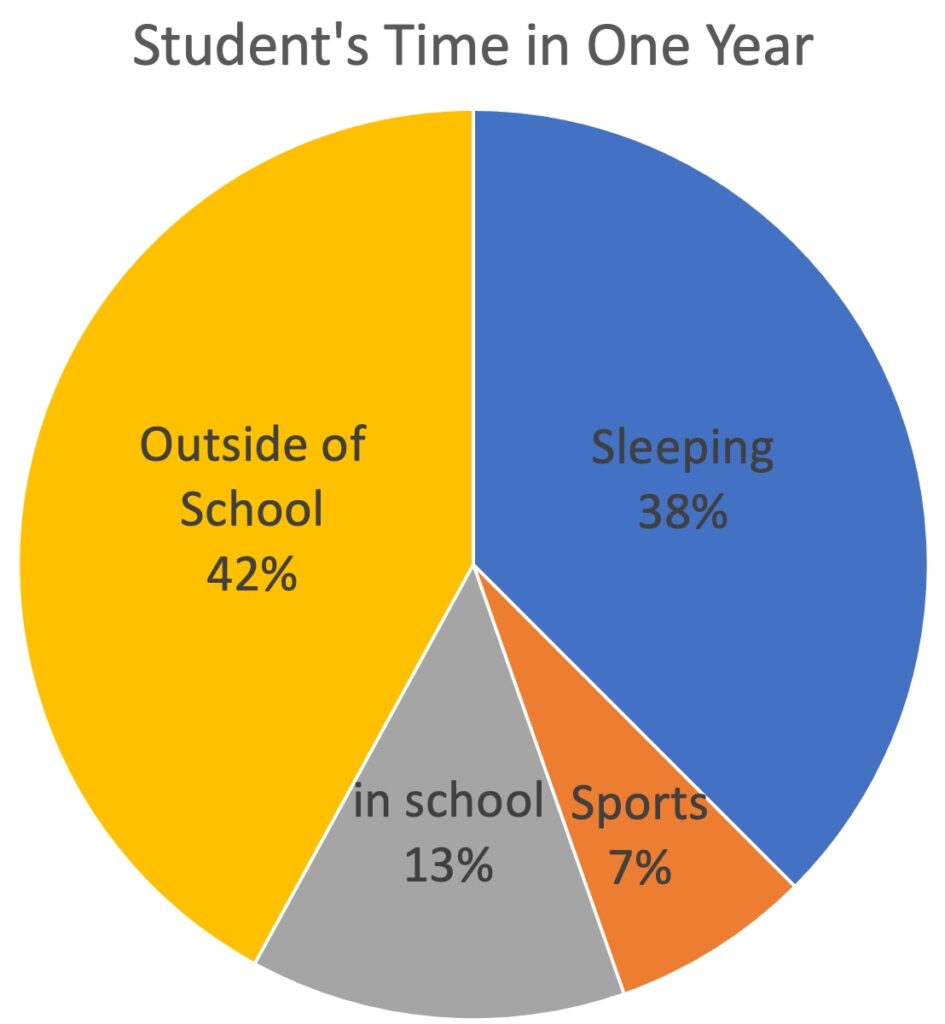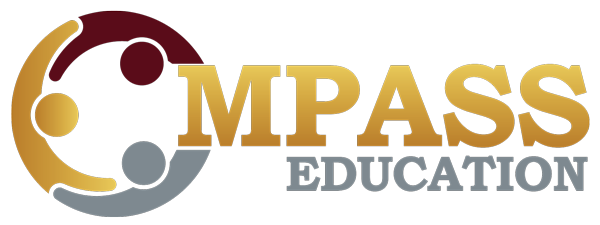I have taken notice of the number of times on social media, in articles, books, and commercials that some entity asks, “Why didn’t they teach us this in school?”. At first, I reflected and thought yes, that is a good skill to have and to share, maybe school should include it. But upon further examination, the topics range from financial planning, organization, cleaning a home, cooking, and the list goes on to the extent that the message is clear that these entities (parents or organizations) assume that school is the only place in which students learn.
Let’s look at this by the numbers. Every state sets its own unique requirements for the number of hours and days students are in school within one year. The least amount of time for students (not including kindergarten) is Arizona which requires 1st – 3rd grade students to attend 712 hours each year. Maryland requires the most at 1170 hours. For the sake of argument, let’s use Maryland’s requirement of 1170 hours each year. There are 8760 hours in one year. Assume students sleep 9 hours each night for a total of 3285 hours leaving 5475 hours that students are awake. Subtracting the hours in school leaves 4305 hours each year. Let’s include time for clubs and sports (2 hours each day 6 days per week for a total of 624 hours) leaves a whopping 3681 hours in a year.


Bottom line, students are in school at most 1170 hours each year and with parents or family members 3681 hours each year! Students have 3 times more hours outside of school than within. Parents are the first and foremost teachers! Family science and child development researchers everywhere are emphatic that good parenting is critical for a child’s development. Parents and family, that means that your child’s education doesn’t begin when they go off to kindergarten. It begins in your home and continues throughout your child’s life, well beyond 12th grade. Burton White of Harvard University writes: “The informal education that the family provides for their children makes more of an impact on a child’s total education that the formal education system. If a family does its job well, the professional can then provide effective training. If not, there may be little a professional can do.” (White, 1990).
Revisiting the original question “Why didn’t they teach us this in school?”, the reason is that public education standards are published within each state and set by a committee, not decided upon by individual teachers or schools. As a parent you should take it upon yourself to know what your child is to learn in school and what will not be covered. If a concept is critical to you, then you should share and teach that concept to your child.
Parents must act upon the fact that formal education only accounts of 33.3% of your child’s time for learning. The other 66.7% of time (for learning) is YOUR responsibility as a parent and family member! Focus on the skills and topics that will support your child the most such as social and emotional skills, moral values, and attitudes, as well as organization, financial literacy, responsibility, etc.. So much can be accomplished through activities, conversations, and routines at home! This also supports your child within formal education and removes some of the distractions in the school day due to lack of social or emotional skills.
So, parents and students, stop blaming teachers for not teaching you a specific concept or idea, but rather hold teachers responsible for the concepts they are required to teach, and take responsibility for the other concepts yourself. Teachers and formal education should provide you with the skills to research and learn additional concepts on your own, it is up to you to pursue the concepts and ideas that you find beneficial.
